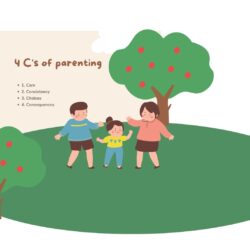Every parent wants their child to do well in school. However, not all kids find studying enjoyable. If your child is not interested in studies, don’t worry! There are ways to spark their curiosity and help them develop a love for learning.
1. Identify the Root Cause
Before taking any steps, try to understand why your child is not interested in studies. Some common reasons include:
- Lack of motivation or confidence
- Difficulty understanding subjects
- Distractions from gadgets or peers
- Learning style differences
Once you identify the issue, it’s easier to address it.
2. Make Learning Fun and Interactive
Traditional study methods may not work for every child. Try these engaging strategies:
- Use educational games and apps.
- Incorporate hands-on activities like experiments and crafts.
- Relate lessons to real-life situations.
- Allow your child to explore subjects that interest them.
When learning is enjoyable, children naturally become more involved.
3. Establish a Study Routine
A consistent study schedule helps children develop good habits. Keep these tips in mind:
- Set a specific time for homework and revision.
- Ensure the study space is quiet and clutter-free.
- Include short breaks to keep your child refreshed.
Consistency creates a sense of responsibility and structure.
4. Encourage a Growth Mindset
Many kids fear failure, which affects their interest in studies. Teach them that mistakes are part of learning. Praise their efforts, not just their achievements. Say things like:
- “I love how you tried a different method!”
- “You worked hard, and I’m proud of you!”
This approach builds confidence and perseverance.
5. Be Involved and Supportive
Children perform better when parents show interest in their education. You can:
- Help with homework when needed.
- Discuss what they learned in school.
- Attend parent-teacher meetings.
Your support reassures them that education matters.
6. Limit Distractions
Excessive screen time can reduce focus. Set rules for TV, video games, and social media. Encourage reading and outdoor activities instead. A balanced routine fosters better learning habits.
7. Seek Professional Help If Needed
If your child continues to struggle, consider speaking with a teacher, counselor, or tutor. They can provide guidance and customized learning approaches.
Final Words
If your child is not interested in studies, patience and the right strategies can help. By making learning fun, setting routines, and offering support, you can inspire a love for education. Every child learns differently—your role is to guide them toward success!





